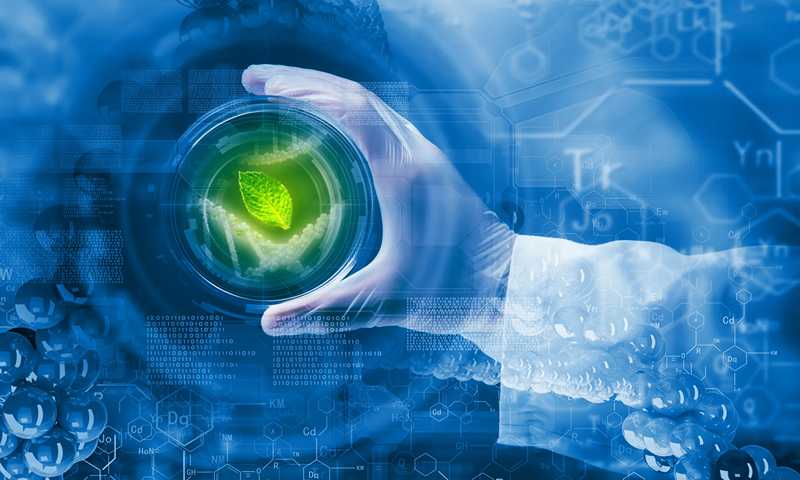
What Is Biotechnology And Why Is It Important?
Imagine waking up to a world where your favorite beverage doesn't exist or there's no medicine for your daily episode of migraine! Yes, living in such a world would have been very undesirable. Here is where biotechnology comes in as the savior.
Now, you may wonder what exactly is biotechnology. Well, biotechnology is the incorporation of biology with the technology used in a way to serve human needs.
Our daily life activities i.e. the food we consume, the groceries we bargain for, the clinics we take assistance from, and the environment we live in - all are improved thanks to biotechnology.
Why is Biotechnology So Important?
From as far as inventing vaccines to fight off COVID-19 to as simple as making cheese, biotechnology is always there to benefit mankind. Some of its importance is listed below:
For Medical Purposes
Over the decades, millions of human lives have been cured thanks to biotechnology. Scientists invented X-rays which help to oversee any internal impairments of a person's body. It is also easier for people to donate their organs with fewer complications nowadays.
At the same time, many new medications have also been discovered that help to relieve pains faster and quicker.
Not only that, a lot of new vaccines have been created using biotechnology. One shot of these vaccines can cure a lot of diseases that were previously untreatable and can simultaneously improve the immune system.
The coronavirus treatments were sped up with the help of biotechnology. This field has been used to perform stem cell research which replaces dead cells with artificial ones. It can help burn victims who use plastic surgeries to get their faces and confidence back.
Biotechnology has helped to develop in vitro fertilization (IVF) by which infertile people can now be parents. It even assisted in making 3D-printed organs for organ or cell transplants. This amazing technology has even managed to design bionic arms so that amputated people can live normal lives.
For Livestock and Sea Creatures
In this sector, biotechnology has been mainly used for the production of better-quality meat. By the modification of certain genes from parents, a greater quantity of livestock animals can be produced. This new generation of animals can have more meat ratio, milk production, nutritional value, or furs in their bodies. It helps in improving the lifestyle of farming and rearing animals.
Other procedures, such as cloning, artificial insemination, and gene editing can be used to benefit the quality of animals even though this is considered unethical sometimes. Using this technology helps in preserving the genes of some animals which have the possibility to become endangered in the future.
Marine biotechnology is another important sector where reproduction in sea creatures is thoroughly regulated. Fish that are unable to spawn or those which change their gender throughout their lifetime can now produce more offspring than before. Again, cod liver oil or other medicines made from marine animals immensely benefit human beings.
For Crop Production
Crop production is the most essential element in our food chain. In order to make the lives of farmers easier, biotechnology designs crops to produce a better yield.
Biotechnology has also helped in increasing the nutritional value of the food produced from the crops. There humans can get more benefits and nutritional value by consuming a lesser portion of their meals.
Sometimes, these crops are also designed to be drought resistant in places where there are little amounts of rain. This is also responsible for the production of stronger crops, immune to any previously occurring diseases.
These plants are engineered to resist some harmful pesticides used during farming in a way that kills insects without damaging the crops. Just like animals, plants can also be restored from becoming extinct using this wonderful technique.
Now, biotechnology has made it possible to produce a new generation of crops. By slightly modifying genomes, plants can be altered into a new and better version of their parents. These plants are grown in labs in a sterilized environment like greenhouses.
Here, off-season plants can also be produced by simply altering the temperature of the surroundings as well as making the soil more fertile.
For Our Environment
Scientists in this field dedicated their lives to creating a pollution-free environment. With the development of new industrial areas, the world has become polluted in various ways. First of all, they have invented plastic-eating bacteria, which cuts down or dissolves plastic disposals in land or oceans.
This has saved many sea animals from choking and helped in restoring our marine lives. Recycling and repurposing trash into something new has also been a major objective.
Next, is cutting down the burning of fossil fuels which emit carbon dioxide and other greenhouse gases to our surroundings. Instead, biofuels are used which pose no harm to our atmosphere. Air filters or biofilters are used in factories that restrict harmful chemicals or bigger dust particles from circulating in the air that can damage the lungs.
For our water pollution, biotechnology uses sludge treatment that uses enzymes from microorganisms to treat water and remove waste. Other techniques include aerobic and anaerobic treatments, sewage water treatments for irrigation, and many other ways our polluted water can be refined.
Bottom Line
In a nutshell, biotechnology is the application of technology for improving the living condition of mankind. It has taken an oath to serve human lives. For producing medicines, rearing animals, producing food, and conserving our environment, this gift of science has been looking after us for centuries.
This unsung hero of modern technology is being used by people like us every day without us even realizing it. Therefore, this amazing field of technology should be more funded for the preservation of human lives.

Comments (0)